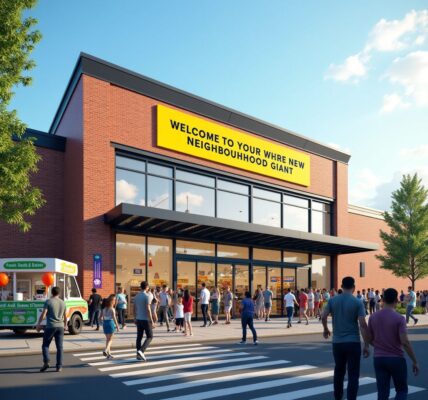In the wake of Hurricane Francine, the grocery sector faces unprecedented challenges. From lost inventory to damaged infrastructure, the aftermath of natural disasters presents both obstacles and opportunities for supermarkets. This article highlights how supermarkets can adapt and innovate to meet consumer needs in these trying times.
Understanding Consumer Behavior Post-Crisis
Hurricanes often alter shopping habits. Consumers are likely to prioritize basic necessities and comfort items, showing an increased interest in local and organic products as they rebuild their lives. Research has demonstrated that during and after disasters, shoppers exhibit heightened demand for health and wellness products. In the case of Hurricane Francine, supermarkets must be strategic in understanding these shifts to match inventory with consumer sentiment.
For instance, stores can tailor product offerings by using data analytics to track purchasing trends, which can help in restocking shelves with in-demand items. Stores like Whole Foods Market have effectively used this method to optimize product selection based on regional consumer preferences.
Efficient Supply Chain Management
Natural disasters like hurricanes disrupt traditional supply chains. Supermarkets must innovate by establishing more resilient logistics and supply chains. This could mean diversifying suppliers or creating localized supply chains to mitigate future risks. One successful example can be seen in the way Walmart manages its supply chain. The retail giant employs advanced technology, such as predictive analytics and real-time inventory tracking, enabling them to adapt quickly in times of crisis.
Furthermore, supermarkets should consider partnerships with local farms and suppliers to ensure a steady flow of goods. By sourcing local products, stores not only help support their communities but also reduce delivery times, ensuring essential items are always available.
Enhancing Customer Experience
Post-crisis, customer loyalty becomes more crucial than ever. Supermarkets should enhance customer experience by incorporating technology into their services. For example, implementing an efficient online ordering system can cater to customers who may still be wary of shopping in physical stores due to safety concerns. Grocery chains like Kroger have seen success with click-and-collect services that allow customers to order online and pick up their groceries without entering the store.
Moreover, improving in-store experiences with informative signage about products, community boards for local events, and regular communication about what to expect post-crisis will keep customers engaged and informed. This transparency builds trust, making consumers more likely to return.
Marketing Strategies in Recovery
Supermarkets must re-evaluate their marketing strategies following a disaster. Promotional campaigns that emphasize recovery and community support resonate well with consumers looking for reassurance. Supermarkets can consider employing social media to showcase how they are helping the community recover, such as donating supplies or hosting community events.
Using email marketing to send personalized offers based on shopping history can keep customers engaged during the difficult recovery period. For example, offering discounts on pantry essentials can drive traffic back into stores while catering to consumers’ immediate needs.
Focusing on Sustainability
Long-term recovery post-Hurricane Francine also opens the door to discussions about sustainability. Consumers are becoming increasingly aware of the impact their purchasing choices have on the environment. Supermarkets can promote eco-friendly products and sustainable practices as part of their recovery efforts. This can include initiatives like reducing plastic use, offering more plant-based options, or partnering with local environmental charities.
A notable example is Aldi, which has committed to offering sustainable products while also minimizing its carbon footprint. These efforts not only attract eco-conscious consumers but also position supermarkets as forward-thinking leaders in their communities.
Conclusion
As supermarkets navigate the aftermath of Hurricane Francine, innovative strategies across supply chain management, customer experience, marketing, and sustainability are crucial. The ability to adapt will not only help them survive in the short term but will also ensure long-term success amidst ongoing uncertainties. Retailers that remain focused on their communities and consumer needs will emerge stronger and better equipped to handle future challenges.












